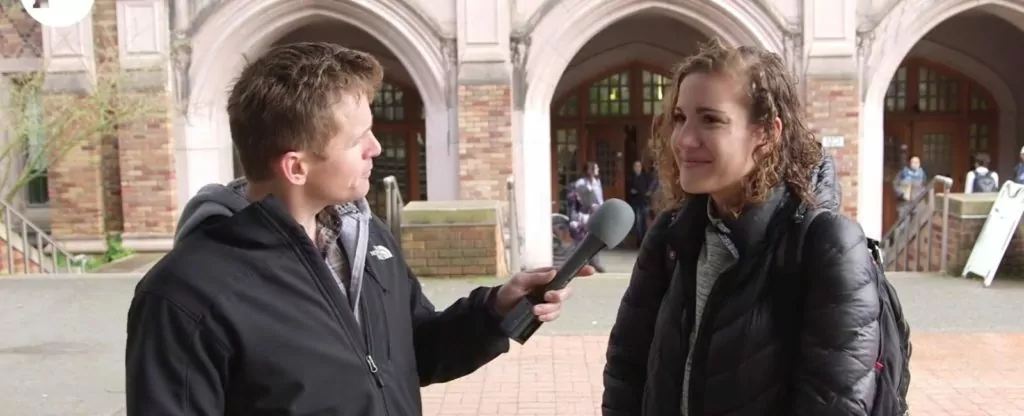Ding dong!
The doorbell goes and through the peephole you can see two young men clad in dark conservative suits. Fortunately you’ve recently read an article or two on Jehovah’s Witnesses so you’re feeling at least a little prepared to talk. Smiling, you nervously open the door.
But as the conversation begins, you quickly realize these aren’t the Jehovah’s Witnesses you’re ready for, but are instead Mormons – and you don’t know anything about Mormons! So what are you going to do?
What are you going to do?!?!?
The burden of proof
Don’t panic! Understand the battle in front of you: ignorance vs. error. You don’t have answers at the ready, but because you serve the one true God you can be confident that there is truth to be found, though it might involve some digging. Meanwhile, these gentlemen at the door might be more knowledgeable about their beliefs than you, but they are utterly wrong. Digging will help here, too, but instead of uncovering truth you’ll be uncovering their error.
So you’re actually in a great position here. You don’t know anything about Mormons? Well here are people eager to teach you. What a great arrangement!
Consider, also, that the pressure is all on them, not you. They’re here to make their case, and provide evidence and reasons for why you should be a Mormon. The burden of proof is right where you want it…on them. In other words it is up to them to make their case and defend it, while you are free to go on the offensive and challenge their assertions with good questions.
Maybe that doesn’t sound like it’s going to be all that effective – how can simply asking questions help you evangelize to Mormons? The key is the burden of proof. Even a four-year-old can confound her parents as long as the burden of proof is on the parents, as long as they have to answer her questions.
“Time to got to bed dear.”
“Why?”
“Because it’s dark out.”
“Why?”
“Because the sun set.”
“Why?”
“Um…it has something to do with the earth’s rotation I think…Hey, honey! Where did we put the encyclopedia?”
The point, of course, is not just to ask questions, but instead to ask questions with purpose. The four-year-old’s purpose is to stay up a little longer while your purpose will be to expose the errors and weaknesses in Mormon belief.
Questions are key
In his apologetics book Tactics, Greg Koukl outlines some questions that can be used in just such an occasion. The first is a question of clarification. When you’re first learning about their beliefs you should be sure you understand what they are saying. You might ask them, “What do you mean by that?” or, “So are you saying…?” Clarification is important because it forces the Mormon (or Jehovah’s Witness, or atheist, or whomever) to restate and explain what they really mean. They’ll have to drop their script and actually think about what they are trying to say. And more than anything, what you want to do is force them to think. Clarification also allows you to learn from this encounter and start to understand what their beliefs are, which could help you the next time you end up in a similar situation.
Secondly, question their assertions. The Book of Mormon is the revealed word of God? “Now how did you come to that conclusion?” The explanation may lead to yet more assertions that you can again challenge.
After a while you may learn enough and feel comfortable enough to try and make a few points of your own. The questioning technique works here too. Instead of telling a person why they are wrong, ask them, “Have you ever considered…?” The use of a question here is a more gentle challenge to their beliefs, and more likely to get a thoughtful, rather than reactive response.
Shifting it back
It’s a simple approach but there is one thing to watch out for…the dreaded switch back! The non-believer answers your question with a question of their own and before you even realize the burden of proof shifts back to you. “So you don’t think The Book of Mormon is God’s word? And yet it seems you think the Bible is. Why is that?”
If you’ve got an answer this is a great opportunity to provide them with some information.
But if not, don’t worry. Remember they’re the ones who’ve come to your door to make their case, and so it is up to them to back them up. Just play it straight, admit your ignorance, and repeat your original question, “I’m not the one making any claims here. You said The Book of Mormon was God’s word and I’m just wondering if you have any reasons for that.”
Study still needed
This technique can be used in any number of settings, with all sorts of people: it might be an atheist professor in your university classroom, or maybe a Muslim friend at your local coffee shop, or maybe an encounters with door-to-door cultists. Any time someone is trying to prove a point to you, the burden of proof is theirs.
Don’t mistake the point being made here. That we can witness without knowing it all doesn’t mean we should neglect to study God’s Word. To do so is to neglect God.
And, of course, evangelism and apologetics will be easier when we know our Bible. It’s also true that this same questioning technique works even better if we know a little something about the beliefs of the person we are talking to. Then our questions can become directed, and we can direct the non-believer towards the weaknesses in their beliefs. Then, if the Lord blesses our efforts, this person will see those weaknesses, and start looking elsewhere for answers about God. He may just ask you why he should believe what you believe.
And as unprepared as we can be for any of their other questions, this is one we really must be ready for.
But sanctify Christ as Lord in your hearts, always being ready to make a defense to everyone who asks you to give an account for the hope that is in you, yet with gentleness and reverence. (1 Peter 3:15)












